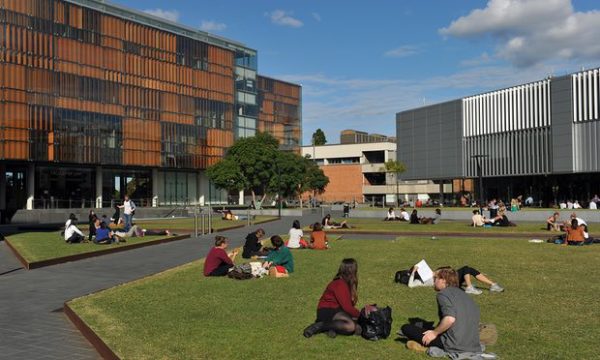Human Rights Commission defends survey on university sexual assaults
April 5, 2017 · By Calla Wahlquist for www.theguardian.com
Data from individual campuses won’t be published unless individual universities decide to make results public

Critics of survey say institutions with fewer reported incidents of sexual assault may disclose results but those with the worst record won’t. Photograph: Paul Miller/AAP
The Australian Human Rights Commission has defended its survey of sexual assault on university campuses against criticism from students and sexual assault survivors, who say they have been let down by the commission’s decision not to publish the full data results.
The commission received 39,000 responses to an online survey conducted by Roy Morgan last year, after a random sample of 60,000 students across Australia’s 39 universities were invited to take part.
It also received almost 2,000 submissions from people who had experienced sexual assault or harassment while at university.
That data will be collated and published in a public report in the middle of this year. But data about sexual assaults or harassment at individual reports or campuses will not be published, unless the each university decides to release the information itself.
That will create a situation where institutions with a lower reported incidence of sexual assault disclose their survey results while those with the worst record do not, National Student Union women’s officer Abby Stapleton said.
The project was launched in May last year in response to an NSU report which found that 73% of women experienced some form of sexual assault or harassment while at university, and has been conducted in partnership with the NSU.
However the union now says the commission has exploited and disrespected both students and sexual assault survivors by declining to publish campus-specific data.
“I have zero faith in our university administrations coming to the decision out of the goodness of their hearts to release that data,” Stapleton said. “If they are not made to do it, they just won’t.”
Stapleton also criticised the commission’s decision to frame its final report around “areas for action” rather than recommendations.
In response to criticisms by Stapelton and others raised in Fairfax Media, sex discrimination commissioner, Kate Jenkins, said students had been confused by terminology used by the commission, and that it had always intended to make recommendations.
“While the commission cannot enforce recommendations in this instance, it has always been our intention to identify areas where universities need to take action,” Jenkins said in a statement on Tuesday.
“However, we have become aware that our terminology – ‘areas for action’ – has been causing some confusion among students. We would like to clarify that the report will include recommendations on areas for action and reform. We are confident that these identified areas for action and reform will form a strong basis for action by universities to address sexual assault and sexual harassment, in close consultation with their own student body.”
On the decision not to release the full dataset as part of the report, Jenkins said: “As we know that this information is important both to students and the community at large, we are recommending that universities publicly release these figures.”
The commission appears to have shifted position from last month, when Guardian Australia understands a senior project officer from the commission told a university audience that the report would “identify areas for action and reform rather than making recommendations”.
“We need to see a large push for the implementation of meaningful recommendations that details exactly how the recommendations are to be implemented because otherwise they really do lose their power,” Stapelton said.
She said the survey lost credibility with the involvement of Universities Australia, which contributed $1m to the project, and the close involvement of various vice-chancellors and university administrators.
“I think everybody really needs to understand that vice chancellors and university management are very much part of the problem,” she said. “It’s just outrageous that they were able to be involved in this process in the first place.”
Concerns have also been raised about the design of the project, only half of which received ethics approval.
The University of New South Wales human research ethics committee approved the online survey, administered by Roy Morgan, but the submission component, which the commission says should be considered separate to the survey, was not put before an ethics committee.
The commission says it consulted with Rape and Domestic Violence Services Australia and 1800RESPECT about the submission form, but Nina Funnell, a sexual assault advocacy and prevention worker, says that only occurred after she raised concerns about the process in Guardian Australia last year.
Funnell said the entire process had been marred by “mind-bogglingly bad practice” and was disrespectful to the victims of sexual assault who had taken the time to make a submission.
“They don’t have to get ethics approval, that is true, but they do have to treat survivors with respect and they haven’t,” she said.
Funnell said the design of questions in the online survey required students to nominate if they had been sexually assaulted, rather than asking them if they had experienced a range of unwanted behaviours that amount to but may not be recognised as sexual assault, which she said would result in under-reporting.
“This was going to be a survey that all 1.3 million Australian university students were going to be given the opportunity to do,” she said. “Over time it has been continually watered down and wound back … I have lost complete faith in the process.”






